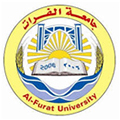آخر الأخبار
استخدام اسلوب فلاندرز في التفاعل اللفظي للمقارنة بين أداء المعلمين المؤهلين تربوياً وغير المؤهلين
2012, Volume 5, issue 19,pp 159-176| Cite as
The usage of Flanders style of the verbal interaction for the comparison between the performance of the qualitied and unqualified teachers
| authors |
Anwer Hamidosh |
| Abstract |
The present research works hard to use the system of Flanders decimal classification to watch teaching from one side and to do a comparison between the performance of the educational qualified teachers and those who are non-qualified and the effect of this method on the follow-up of the direct method and the indirect in teaching to achiere the aim of the research ,the researcher suggested the following suppositions. Students who study through the indirect style of teaching eocpress their point of view in a way which is more positive and in a difference which indicates effectiveness than those students who use the direct method to study .Teachers who are educationally qualified use the indirect method in teaching more than those non-qualified teachers .this effects badly their students career and studies. Depending on the experimental syllabus teachers have been divided into two groups. The first group consists of three non-qualified teachers educationally .Their behavior in class has been watched closely .Three notes have been recorded on each teacher. The second group consists of three qualified teachers. Their teaching behavior has been watched closely and recorded in an average of three notes for each one. The research has concluded to results that indicate that the speech of educationally qualified teachers: direct and indirect was 67.6% this result agrees with what Flanders referred to in his study .The rate of indirect speech is more than the rate of direct speech due to educationaiiy qualified teachers compared with their non-qualified colleagues this means that the teaching methoel of teachers is indirect. This shows the importance of the educational preparation for teachers to follow the indirect method in teaching .The learner's speeh was within the average rate hinted to by flanderz which is about 25%.This study indicates that the utterance interaction has positive points of motivating learners to participate and communicate inside class that is surrounded by words of acceptance ,encouragement, praise and compliment.
Key words: Utterance interaction, performance ,educationally qualified and non-qualified. |
| الكاتب |
أنور حميدوش |
| الملخص |
- يسعى البحث الحالي إلى استخدام نظام التصنيف العشري لفلاندرز في ملاحظة التدريس من ناحية وإجراء مقارنة بين أداء المعلمين المؤهلين تربوية والمعلمين وأولئك الذين لم يخضعوا للتأهيل التربوي وأثر ذلك على اتباع الأسلوب المباشر وغير المباشر في التدريس . ولتحقيق الهدف من البحث قام الباحث بطرح الفرضيات التالية : " - الطلبة الذين يدرسون بالأسلوب غير المباشر في التدريس يعبرون عن آرائهم بصورة أكثر إيجابية وبفرق ذي دلالة من الطلبة الذين يدرسون بالأسلوب المباشر - المعلمين المؤهلون تربوية يلجاوون إلى الأسلوب غير المباشر في التدريس أكثر من المعلمين غير المؤهلين تربوية مما يؤثر على أداء طلبتهم وتحصيلهم تم تقسيم المعلمين إلى مجموعتين معتمدا على المنهج التجريبي : - المجموعة الأولى وتضم ثلاثة معلمين من غير المؤهلين تربوية تم رصد سلوكهم في الموقف الصقي بمعدل ثلاث ملاحظات المعلم الواحد - المجموعة الثانية وتضم ثلاثة معلمين من المؤهلين تربويا حيث تم رصد سلوكهم التدريسي بمعدل ثلاث ملاحظات المعلم الواحد. . وقد توصل البحث إلى أشارت النتائج إلى أن حديث المعلمين المؤهلين تربوية المباشر وغير المباشر كان 69 , 6 % وهذا يتفق مع مع ما أشار إليه فلاندرز في دراسته . . ارتفعت نسبة الكلام غير المباشر على الكلام المباشر عند المعلمين المؤهلين تربوية بمقارنتهم بالمعلمين غير المؤهلين تربوية وهذا يعني أن الأسلوب التدريسي للمعلم يكون غير مباشر ، مما يشير إلى أهمية الإعداد التربوي في اتباع المعلم للأسلوب
التدريسي غير المباشر . . كان كلام المتعلم ضمن النسب القياسية التي أشار إليها فلاندرز أي بحدود 20 % وهذا يشير إلى أن التفاعل اللفظي له إيجابية في دفع المتعلمين للمشاركة والتفاعل مع البنية الصفية المحيطة التي يغلب سلوكيات التقبل والتشجيع والثناء والمديح .
كلمات مفتاحية : التفاعل اللفظي ، الأداء ، المؤهلين تربوية وغير المؤهلين. |














